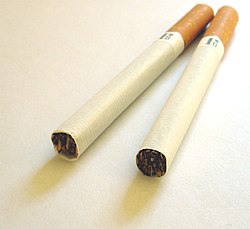 The Obama administration, expanding a program created by the new healthcare law, moved Tuesday to make health insurance more affordable and accessible for Americans who have been denied coverage because they are sick.
The Obama administration, expanding a program created by the new healthcare law, moved Tuesday to make health insurance more affordable and accessible for Americans who have been denied coverage because they are sick.
Across the country, the federal government is reducing premiums on special coverage available to uninsured people with preexisting conditions such as cancer or diabetes. And the administration is loosening restrictions on who can sign up for so-called preexisting condition insurance plans.
Government to lower prices, ease rules on health plans for people with preexisting conditions
FDA targets supplement manufacturers, falsely accuses them of selling drugs
 In the eyes of the US Food and Drug Administration (FDA), there is no difference between a legitimate, scientifically-backed health claim, and a phony, made-up claim, as it concerns food and dietary supplements. Only FDA-approved drugs, you see, provide real health benefits, according to the agency. And in its continued assault against health freedom, the FDA has sent warning letters to five different companies that produce natural treatments and cures for sexually-transmitted diseases (STDs) because those companies dared to make unauthoried health claims, many of which are backed by peer-reviewed, journal-published scientific studies.
In the eyes of the US Food and Drug Administration (FDA), there is no difference between a legitimate, scientifically-backed health claim, and a phony, made-up claim, as it concerns food and dietary supplements. Only FDA-approved drugs, you see, provide real health benefits, according to the agency. And in its continued assault against health freedom, the FDA has sent warning letters to five different companies that produce natural treatments and cures for sexually-transmitted diseases (STDs) because those companies dared to make unauthoried health claims, many of which are backed by peer-reviewed, journal-published scientific studies.
WHO caves: Allows smallpox stockpiling for three more years
 Once again, the World Health Assembly failed to set a deadline for the destruction of smallpox samples, delaying discussion for another three years. Though it still affirms the need for live sample destruction, the two-day “contentious debate” (repeated for the last 25 years) ended on May 24 in a victory for bioweapons development in the U.S. and Russia.
Once again, the World Health Assembly failed to set a deadline for the destruction of smallpox samples, delaying discussion for another three years. Though it still affirms the need for live sample destruction, the two-day “contentious debate” (repeated for the last 25 years) ended on May 24 in a victory for bioweapons development in the U.S. and Russia.
“The retention of the existing stocks of smallpox virus are not required” to maintain and bolster current vaccine supplies, argues Dr. D. A. Henderson in Biosecurity and Bioterrorism: Biodefense Strategy, Practice, and Science. Through current technology, smallpox vaccines can be developed from the known genome. Live viruses are simply no longer needed.
Biological disarmament is not on the table, however, though the debate has been raging since smallpox eradication over 30 years ago.
Narcolepsy cases rising after swine flu vaccine
 Ninety-three people in Sweden, most of them children, have been diagnosed with narcolepsy since taking the swine flu vaccine Pandemrix last winter, according to figures from the Swedish Medical Products Agency (Läkemedelsverket).
Ninety-three people in Sweden, most of them children, have been diagnosed with narcolepsy since taking the swine flu vaccine Pandemrix last winter, according to figures from the Swedish Medical Products Agency (Läkemedelsverket).
According to the Swedish Association of Persons with Neurological Disabilities (Neurologiskt handikappades riksförbund - NHR), the agency is examining a further 135 cases involving children and will present its full findings later this summer.
Researchers Say New Studies Confirm Cell Phone Hazards
 "Stunning proof" ignored in North America, scientists say.
"Stunning proof" ignored in North America, scientists say.
Now, a group of international researchers meeting in Istanbul, Turkey has released what they call “stunning proof” that confirms findings from the Council of Europe -- pulsed digital signals from cell phones disrupt DNA, impair brain function and lower sperm count.
Beaches, parks off limits to New York smokers
 New York City took its smoking prohibition outdoors on Monday, adding the city's parks and beaches to the list of places where smoking is banned as part of Mayor Michael Bloomberg's campaign to promote healthy habits.
New York City took its smoking prohibition outdoors on Monday, adding the city's parks and beaches to the list of places where smoking is banned as part of Mayor Michael Bloomberg's campaign to promote healthy habits.
The ban, which officials hope will prevent problems caused by second-hand smoke, adds to the city's 2003 ban on cigarettes in bars and restaurants. The new law will not be enforced by police but by some 200 parks personnel who watch over the city's 29,000 acres (12,000 hectares) of park land and beaches. Violators face a $50 fine but officials say the ban is meant to be largely self-enforcing.
Study shows sharp rise in early autism diagnoses
 More children aged 3 and younger are now being treated for autism in Massachusetts, a new study finds. One in 129 children in Massachusetts born between 2001 and 2005 was enrolled in early intervention programs for an autism spectrum disorder by their third birthday, according to the study.
More children aged 3 and younger are now being treated for autism in Massachusetts, a new study finds. One in 129 children in Massachusetts born between 2001 and 2005 was enrolled in early intervention programs for an autism spectrum disorder by their third birthday, according to the study.
Over the five-year period, the proportion of children aged 3 and younger getting treated rose from one in 178 among children born in 2001 to one in 108 for those born in 2005 — a 66% increase.
More Articles...
Page 106 of 234

 Health Glance
Health Glance






























